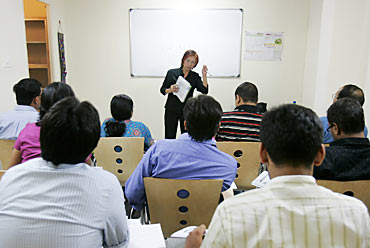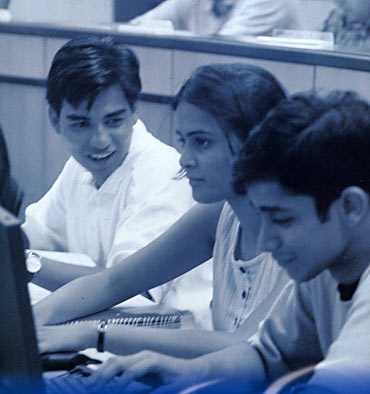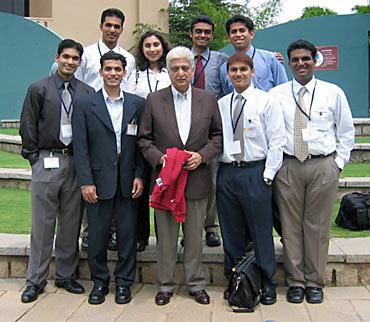
Most aspiring B-school candidates are through with their group discussions and interviews and management institutes have begun making their final admission offers. A lucky few will get offers from top-notch institutes and will be spoilt for choice. Given the reputation and credibility of the top institutes in the country, whatever choice they make will generally work out fine.
However, for the majority of students, who have offers from the middle-rung and lesser known institutes, they will have to be extremely careful about choosing which institute they finally join. They should ensure that they make an 'informed choice' after a thorough verification of several parameters. In fact, there is a mix of different factors that decide the merit of a B-school. This article discusses some of these.
Placements
This is what appears to matter most to many students -- ultimately they look at the pay packet and the career prospects that an MBA degree/ diploma offers. My advice to students is to make sure that the institute offers credible campus placements. There are two points to be kept in mind here:
a) Do not look only at salaries. Look also at the number, nature, reputation and variety of companies that come to campus for placements. This is because if you wish to specialise in a particular stream and work in that field (example: marketing or finance), there should be a sufficient number of reputed companies in that field that recruit from campus.
b) Verify that the placements that the institute claims are actual on-campus placements. Some institutes do advertise placements that their students have obtained -- but these may be due to the students' own efforts, not the institute's! A related point is that you should check as to which companies actually visit the campus on a regular basis ie almost every year (and not just on some ad hoc occasions).
One caveat here: Try and verify the placement data/ salary figures that various schools claim from independent sources/ past students of that business school; don't just believe the figures you see on various websites/ in the press blindly.
...
The author, an alumnus of IIM Calcutta, is an MBA preparation expert and has been involved in MBA coaching for almost six years. He has also written the best-selling 'An Introduction to CAT-Tips from an IIM Alumnus' published by Pearson Education. He can be contacted at bsiddharth_2001@yahoo.co.in

Go through the faculty list on the institute's website or in their brochure/ prospectus. Check whether the business school has renowned full-time, qualified faculty. Try and check if the faculty that the business school claims to have are actually full-time and not mere visiting faculty/ guest lecturers who may or may not be available at all times for students.
Quality of students
This factor is extremely important, though often neglected by students. I strongly feel that you can learn a lot from your colleagues and peers, besides the faculty and the institution itself. Fellow students of high academic calibre, varied interests and diverse backgrounds can contribute a lot to your all-round development.

The two-year full-time MBA course in most institutes requires you to do a summer internship for a few weeks/ months. Once again, see if the institute offers campus placements for this internship. It is not easy to run around trying to obtain an internship for yourself.
Factors such as the location of the B-school and its industry contacts/ partnerships help in ensuring that students get to do interesting and knowledge-enhancing internships.
Another related factor is the opportunity for 'live' projects with reputed companies. These projects are part of your course curriculum in top institutes are vital. Importantly, they will help in your obtaining your final placement as well.
Guest lecturers (including visiting faculty)
Check out the kind of guest lectures delivered at the institute and who host these. Along with the quality of internships/ 'live projects', as mentioned earlier, this parameter could be very good indicator of the kind of placement opportunities available to students since it reflects the level of interaction that the particular institute has with industry.
Infrastructure
Good management institutes have at least the basic infrastructure in place. This helps in disseminating the pedagogy effectively and ensuring that students are well-versed in modern-day management tools.
Accordingly, a well-equipped computer centre, libraries, projectors, seminar rooms for guest lectures etc are a must. Once again, it is a good idea to verify all this rather than merely rely on the institute's website or marketing brochure. Speak to alumni of the B-school or try to visit it yourself.